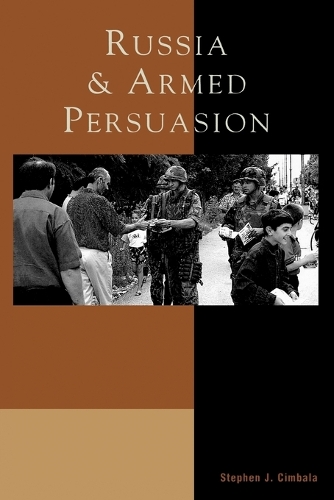
Russia and Armed Persuasion
(Paperback)
Publishing Details
Russia and Armed Persuasion
By (Author) Stephen J. Cimbala
Bloomsbury Publishing PLC
Rowman & Littlefield Publishers
1st November 2001
United States
Classifications
General
Non Fiction
Political science and theory
International relations
355.033547
Physical Properties
Paperback
256
Width 155mm, Height 224mm, Spine 16mm
336g
Description
In this book Cimbala argues that Russia's war planners and political leaders must make painful adjustments in their thinking about the relationship between military art and policy. Long known for its policy of total war, Russia, with its strapped resources, must now master the use of force for persuasion. Military persuasion requires that Russian leaders master the politico-military complexity of crisis management, deterrence and arms control, and the limitation of ends and means in war. Cimbala's original analysis demonstrates the similar features in apparently dissimilar, even opposite, events and processes. He shows for example, how military persuasion applies equally to the challenge of managing a nuclear crisis and a low-intensity conflict. Controversially, the author argues against both military and academic traditionalists, contending that the complexity of the force-policy relationship in this new century will reward the subtle users of military power as others face a "Gulliver effect" of diminishing returns.
Author Bio
Stephen J. Cimbala is Distinguished Professor of Political Science at Pennsylvania State University.
